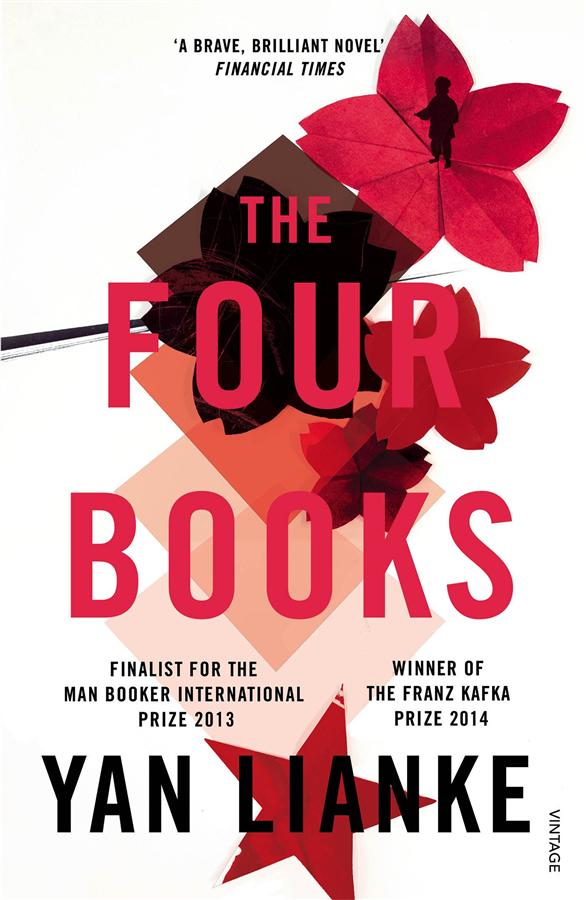內容簡介
內容簡介 2014年卡夫卡文學獎得主代表作,繼2006年日本作家村上春樹之後,第二位獲獎的亞洲作家!《四書》至今在中國仍舊無法出版,觸及中國知識分子的磨難,表達人的靈魂深度的真實。『獻給那被忘卻的歷史和成千上萬死去與活著的讀書人。』--閻連科 《四書》以「孩子」為貫穿章節的主要角色,是一妙著。從最初的無理取鬧到明理知情,從自私自利到捨己為人,「孩子」的蛻變反映出來的,無疑是傳統「成長小說」賴以不墜的關鍵。從這個層面看來,《四書》無疑是一部成功的成長小說,不過閻連科當然志不在此。他要說的是一個更為複雜的悲劇,而這悲劇恰恰透過兒童話語得到了最為鮮明的對照。《四書》的內容虛實交錯。紀實的時間背景是大躍進大飢荒,虛構的地理空間則是在「罪人育新區」。「九十九區」在黃河南邊四十幾公里的地方,「共有一百二十七個人,百分之九十五都是讀書人。」在育新區裡,「萬般皆下品,惟有讀書高」的期待太過陳腐,只有肉體勞動才能見證存在的價值。閻連科筆下的育新區有獨特的風光和歷史,「就像一棵老樹上的疤,最後成為了望著世界的眼。」--蔡建鑫所有中國知識分子的罪與罰,被赤裸而情絕地被披露在《四書》裡,構成一部瘋狂的歷史悲劇之書。生命與文化的浩劫席捲而來,人人自危,喪心病狂,從此,人不再是人,神也不再是神。閻連科以如同希臘神話中的神對西緒弗的懲罰,讓西緒弗日復一日推著巨石的虛無與隱喻手法,書寫一群知識分子在上個世紀50年代末60年代初,中國開始「大躍進」、「大煉鋼」中難以承受的沉重創痕與生命苦難。從1959年到1961年, 人禍天災連環套,估計有數千萬的中國人民因決策問題以及糧食短缺而成為餓殍。荒謬的是,掌控這群人的命運者,竟然只是個「孩子」。針對「育新」政策,在風聲鶴唳的環境裡,人人為求自保,必須犧牲許多人而留下自己的活路。人性被扭曲以後,人就更知道如何在夾縫中苟且偷生了。小說的主角作家,其任務是監視九十九區裡,潛藏反動意識、行為越軌的負罪者之罪狀,和盤記錄下而向上(孩子)輸誠,書名便是《罪人錄》,也就是上層所謂的「革命文學」。作家處心積慮為求離開育新區,向孩子允諾一定種出比日常更碩美的麥穗,他的照料麥禾方式,竟是以自己的鮮血澆灌麥苗。在生命的煉獄裡求生,毫無道理可言;唯一遵循的法則,只有拋棄道德良知,才可能存活下來。身分原來是音樂家的女人,為了生存下來,不惜出賣肉體換取糧食,最終竟也賠掉性命。育新區的嚴冬降臨,大雪覆地,寸草不生,在斷糧的危機下,那些死去的冰凍屍體竟變成果腹維生的食物。學者流著蒼濁的淚,大聲地哭著喚著說:「讀書人呀……讀書人……」,似乎為著整一代的知識分子而哭。而「孩子」最終竟贖罪般將自己釘死在十字架上。……他們,最終能夠獲得自由嗎?本書中文書介出自<<四書>> 麥田出版"One of China's greatest living authors and fiercest satirists." (Guardian). In the ninety-ninth district of a sprawling labour camp, the Author, Musician, Scholar, Theologian and Technician are undergoing Re-education, to restore their revolutionary zeal and credentials. In charge of this process is the Child, who delights in draconian rules, monitoring behaviour and confiscating treasured books. The inmates - and hundreds of intellectuals just like them - must meet challenges set by the higher-ups: to grow an ever-spiralling amount of wheat per li of land, and to smelt vast quantities of steel. The stakes are high: they can win their freedom if they are awarded enough of the small red blossoms, medium red blossoms and pentagonal stars given out for effort, obedience and informing on others. But when bad weather arrives, followed by the 'three bitter years' of the Great Famine, the intellectuals are abandoned by the regime and left on their own to survive. Divided into four narratives, echoing the four texts of Confucianism and the four Gospels of the New Testament, The Four Books tells the story of one of China's most controversial periods. It also shows us the power of camaraderie, love and faith against oppression and the darkest possible odds. Winner Of The Franz Kafka Prize 2014. Nominated For Czech Award Magnesia Litera 2014. Hua Zhong World Chinese Literature Prize 2013. Finalist For The Man Booker International Prize 2013. Winner of The Hua Zhong Chinese Literature Prize 2013. Shortilisted For The Independent Foreign Fiction Prize 2012. Shortlisted For The Prix Femina Etranger 2012. Shortlisted For The Man Asian Literary Prize 2011. Winner Of The Lao She Literature Award 2004. Winner Of The Lu Xun Award 1997.
